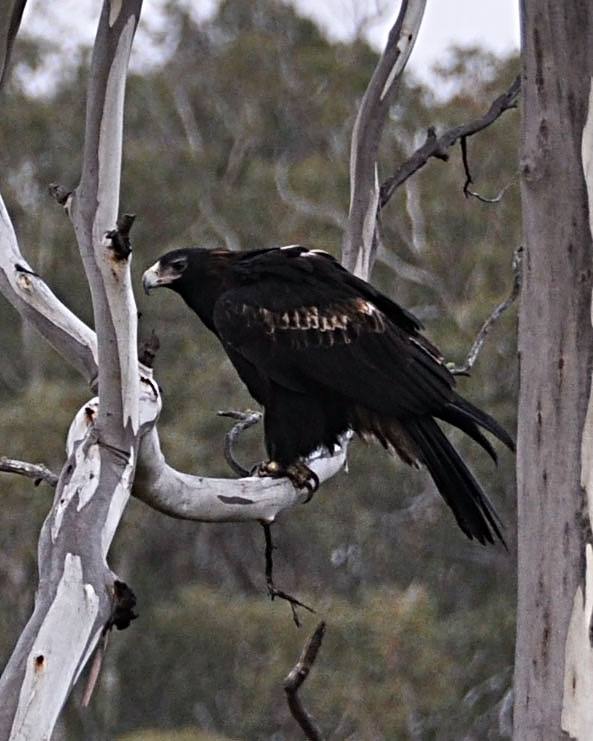In all human languages, speakers can choose to speak quickly (in Dieri nhurru-nhurru yathayi) or to speak slowly (in Dieri marnka yathayi). Typically, in ordinary conversation with other people who also speak the same language as us we use a quicker more colloquial style, and when talking to others who can’t understand well, or to emphasise something, we can speak more slowly. Dieri speakers can do the same thing, and in a previous blog post we presented some examples of this from Luise Hercus’ recordings of the late Alec Edwards.
In today’s post we focus on some of the common features of Dieri fast speech.
- We saw in a previous blog post that Dieri uses auxiliary verbs to express locations in time when an action or event takes place. Here are the forms discussed earlier:
Verb Auxiliary Function waparna wanthiyi ‘went long ago’ — a situation that took place a long time ago waparna wapaya ‘went a while ago’ — a situation that took place some time ago, perhaps one or two months ago waparna wapayi ‘always goes’ — a situation that habitually takes place waparna parraya ‘went a couple of weeks ago’ — a situation that took place one or two weeks ago wapalha wirriyi ‘went yesterday’ — a situation that took place yesterday waparna warayi ‘went earlier’ — a situation that took place earlier today wapalha nganayi ‘will go’ — a situation that will take place later In fast speech the auxiliary verbs get mashed onto the end of the main verb. Here are two examples — the first one involves the future auxiliary nganayi and comes from Alec Edwards (recorded by Luise Hercus). Listen to this recording of the sentence nganhi yathalha nganayi thanangu ‘I will speak to them’:
Notice that yathalha ‘speak’ and nganayi ‘will’ sound squashed together. This is clear when Alec repeats the sentence slowly:
The second example involves the distant past auxiliary wanthiyi and comes from a recording of Aunty Winnie Naylon made by Greg Wilson. Listen to this recording of the sentence nhani pirkirna wanthiyi tyaputyapu schoolanhi ‘She played ball long ago at school’:
So pirki-rna wanthiyi sounds like pirkirnanthiyi. A similar effect occurs with the recent past auxiliary warayi so that in fast speech pirki-rna warayi ‘played recently’ sounds like pirkirnaurayi. Here is another example that Greg Wilson recorded with Aunty Rene of her saying yini wakararna warayi pinarru ‘You just came old man’. Notice that wakararna warayi gets run together:
Interestingly, the policeman Samuel Gason published a book in 1874 called “THE MANNERS AND CUSTOMS OF THE DIEYERIE TRIBE OF AUSTRALIAN ABORIGINES” (a reproduction of the book can be seen on this website). It includes some Dieri words and expressions and, interestingly, he recorded the fast conversational forms of verbs and did not write down the slower clearer forms. So his materials include:
- “I shall love — Athooyoralauni” for ngathu yuralha nganayi
- “I did or have loved — Athooyooranaori” for ngathu yurarna warayi
- “Has asked — Achanaori” for ngantyarna warayi
Notice that Gason’s spelling is not very accurate and he seems not to have heard the sound ng at the beginning of Dieri words!
- The sequence ngathu ‘I’ (transitive subject) followed by yinha ‘you’ (transitive object) is often squashed together so instead of ngathu yinha nhayiyi ‘I see you’ in fast speech we would say something that sounds like ngathinha nhayiyi
In a future blog post we will present some stories recorded with speakers in the 1970s that clearly show these fast speech conversational features.

